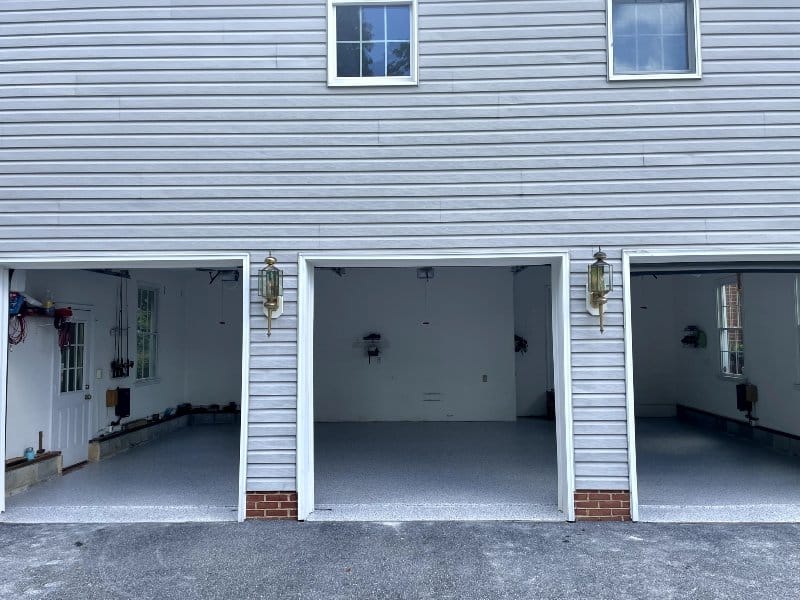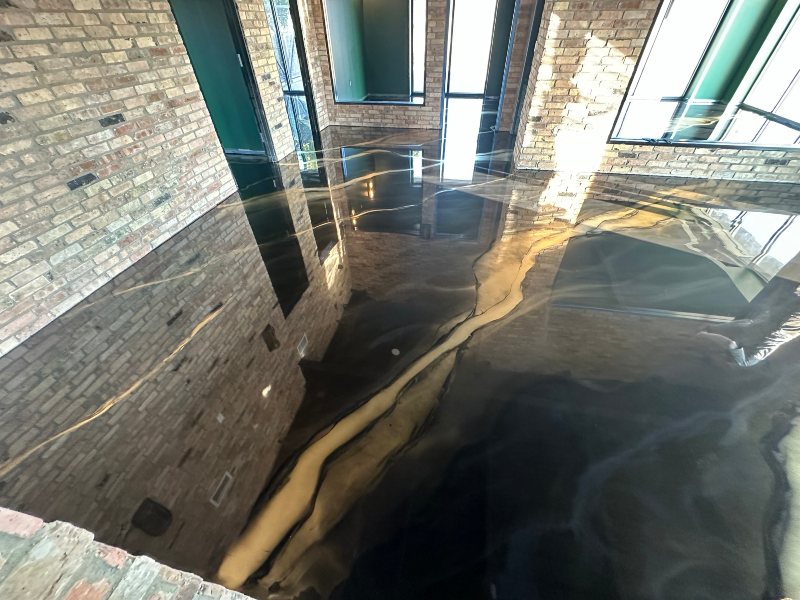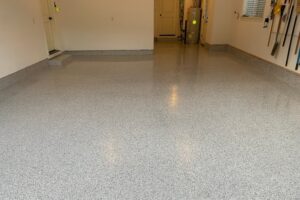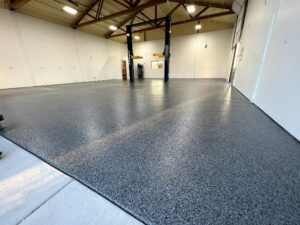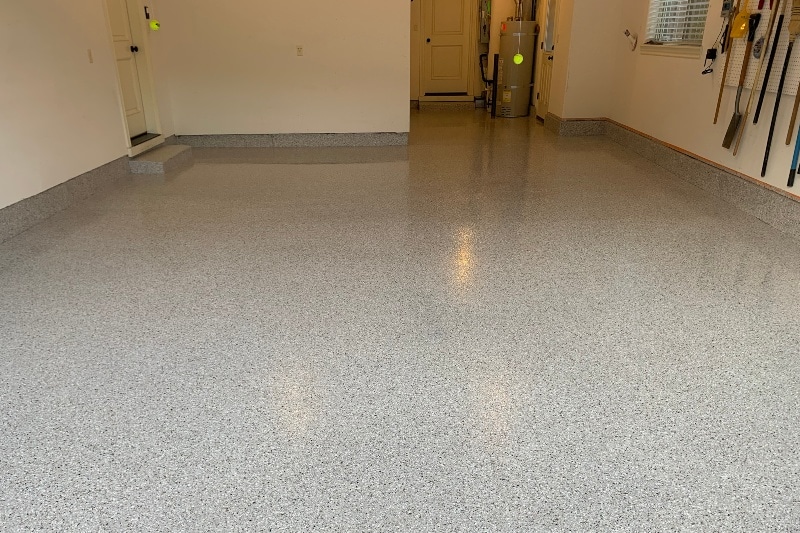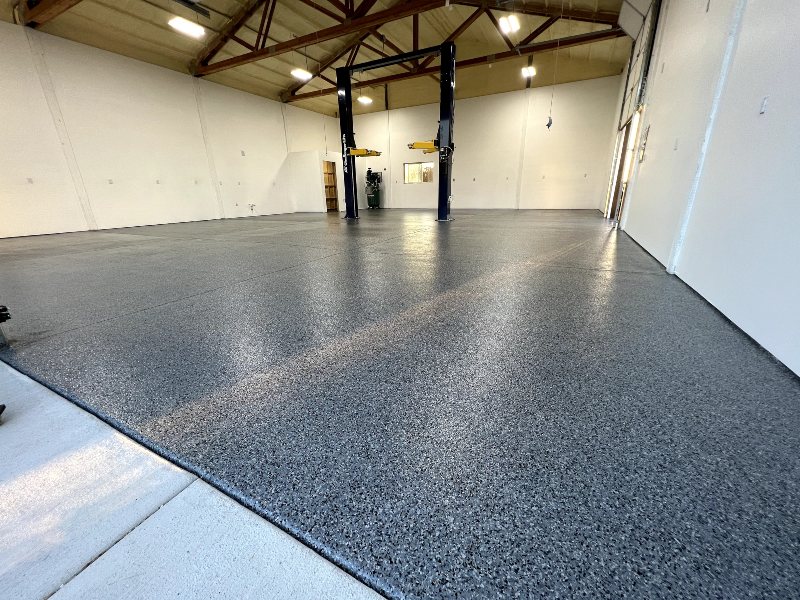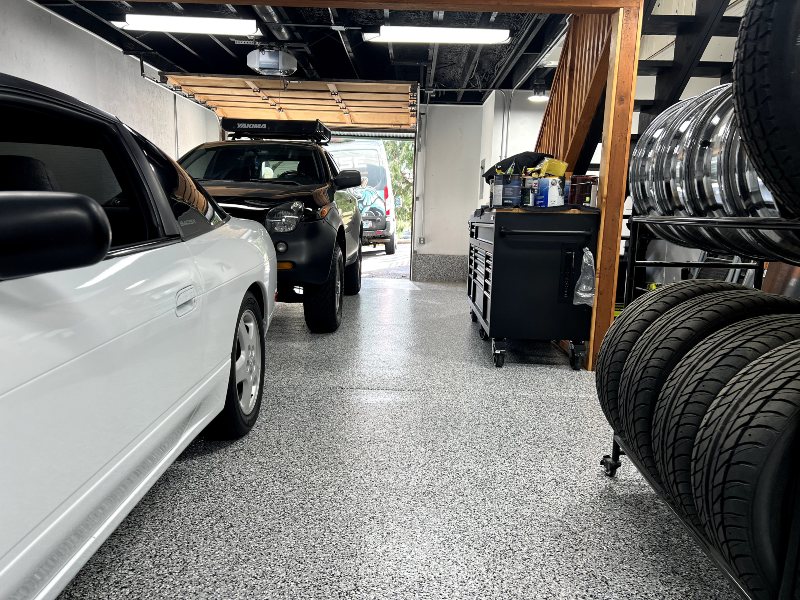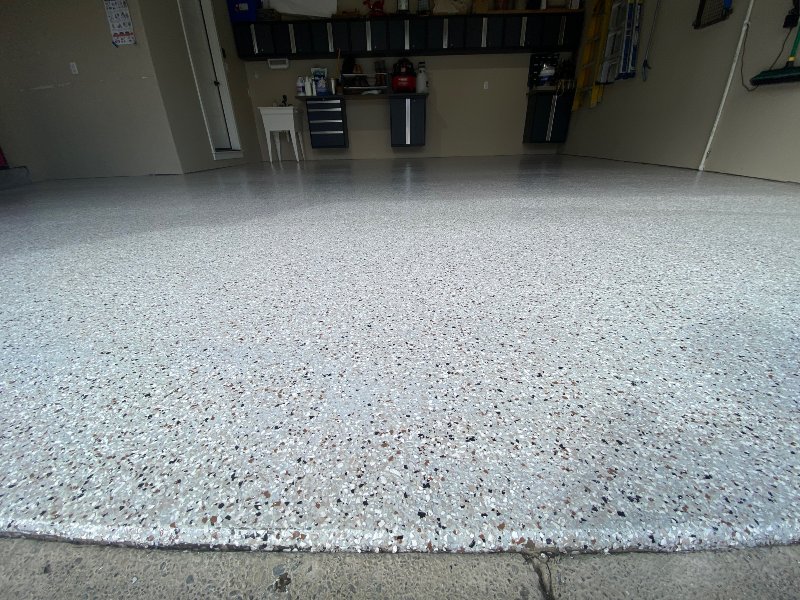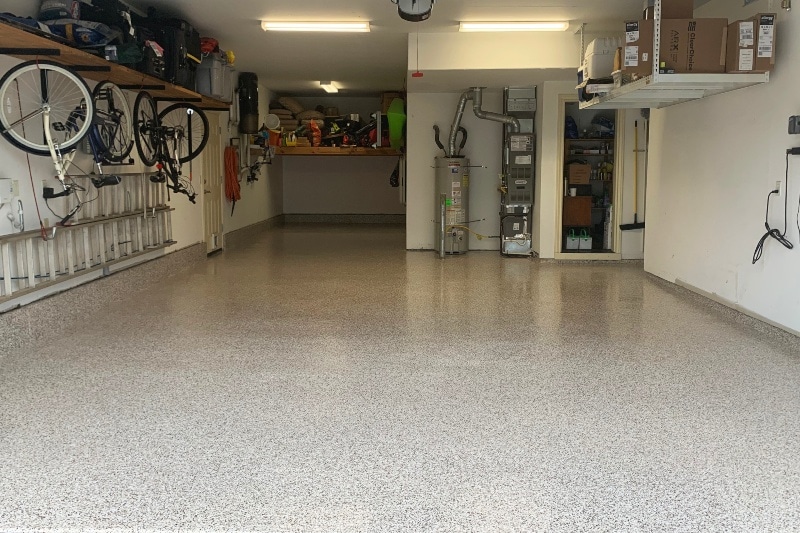Experience the Future of Flooring with Epoxy Flooring Near Me Services
Are you tired of traditional flooring options that easily wear out and require constant maintenance? Are you looking for a more modern, durable, and cost-effective solution for your home or business? Look no further than epoxy services. Epoxy flooring has skyrocketed in popularity due to its numerous benefits, making it the future of flooring. With its sleek appearance, low maintenance requirements, and long lifespan, epoxy is quickly becoming the go-to choice for homeowners and business owners alike. In this blog post, we’ll delve into the world of epoxy flooring near me services and discover why it’s considered the ultimate solution for all your flooring needs. Get ready to experience a revolutionary change in the way you view and use floors with epoxy!
Introduction to Epoxy Flooring and its Rising Popularity
Epoxy flooring is not just a unique solution; it’s a transformative one. With its ability to turn traditional concrete floors into sleek, high-performance surfaces, epoxy floor coatings are becoming increasingly popular. These coatings are composed of a precise combination of hardeners and resins that create a strong, resistant layer, tightly bonding to the substrate.
But epoxy flooring is more than just a surface coating. It’s a complete flooring system that offers remarkable resilience against daily wear and tear, spills, stains, and heavy traffic. Its aesthetic appeal, combined with exceptional durability, makes it an ideal choice for both commercial and residential spaces. In fact, its demand has surged in recent years, extending its application beyond garages and warehouses to living spaces, offices, and retail outlets.
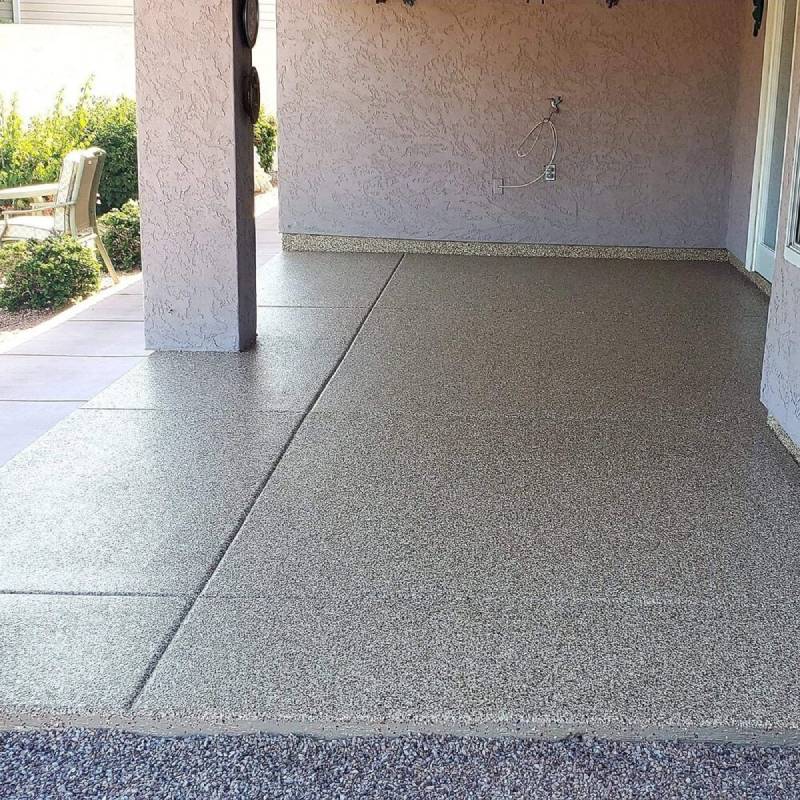
The rise in popularity of epoxy flooring is a testament to its ability to deliver a balance of style, practicality, and economic viability – a combination that today’s homeowners and businesses greatly value. So, if you’re looking for a flooring solution that offers both functionality and a touch of elegance, epoxy flooring is the way to go.
The Benefits of Epoxy Flooring
Epoxy flooring offers a plethora of benefits that make it stand out among other flooring options.
- Durability and Longevity: Epoxy floor coatings are extremely durable and resistant to wear and tear, making them a long-lasting solution for both residential and commercial flooring. They can withstand heavy traffic, spills, and stains, ensuring that your floor remains pristine for years to come.
- Low Maintenance: With its seamless and smooth surface, epoxy flooring is easy to clean and maintain. It resists dust, dirt, and grime, which can simply be swept or mopped away. This makes it an excellent option for areas that require strict cleanliness, such as kitchens, bathrooms, and medical facilities.
- Aesthetic Appeal: Epoxy flooring is available in a wide range of colors, patterns, and finishes, offering limitless design possibilities to match the style of any space. Its high-gloss finish can significantly enhance the brightness of an area, adding a touch of elegance to your home or business.
- Cost-Effectiveness: Despite its high-end look, epoxy flooring is surprisingly affordable. Its durability and low maintenance requirements mean you’ll save on repair and replacement costs in the long run.
- Safety: Epoxy flooring is resistant to slippage, temperature, fire, and impact. This improves the safety of the environment, making it a suitable choice for industries that require a safe and durable floor surface.
So, whether you are designing a new space or refurbishing an existing one, epoxy flooring offers an ideal blend of practicality, durability, and style. Its multitude of benefits is proof that epoxy really is the future of flooring.
Types of Epoxy Flooring Options
Epoxy flooring comes in a variety of types, catering to different needs and preferences.
- Self-Leveling Epoxy Floors: These are best for when you need to repair damaged, uneven, or old concrete floors. A self-leveling epoxy provides a smooth and level texture, making it an ideal choice for commercial and industrial applications.
- Quartz-Filled Epoxy Floors: For spaces that require sanitary and slip-resistant properties, quartz-filled epoxy floors are an excellent choice. These utilize a combination of high-performance epoxy polymer resin and stained quartz grains.
- Epoxy Mortar Floors: Known for their extreme durability, epoxy mortar floors are perfect for areas that take a beating. They’re commonly used in manufacturing plants, commercial kitchens, and garages.
- Epoxy Flake Floors: If you’re after a decorative touch, epoxy flake floors embed colored flake materials in the epoxy to create vibrant, multi-hued patterns. These are popular in commercial and residential properties due to their aesthetic appeal and slip-resistant surface.
- Anti-Static Epoxy Floors: These floors are used in spaces where a static-free environment is crucial, such as hospitals, electronics equipment manufacturing plants, and pharmaceutical facilities. They contain a conductive compound that accumulates static electricity to drain, ground, or dissipate any potential discharge.
Each type of epoxy flooring offers unique benefits and aesthetic options, making it crucial to consider your needs and consult with an expert before making a decision.
Choosing the Right Epoxy Service Provider Near You
Choosing the right epoxy service provider is a crucial step in your journey to transform your floors. Settling for the wrong service provider can cost you time, money, and the hassle of redoing the entire job. To help you make an informed decision, here are a few tips:
- Experience and Expertise: Look for a service provider with a proven track record in the epoxy flooring industry. Their experience and expertise will ensure that the job gets done correctly and efficiently.
- Quality of Materials: The quality of epoxy materials used directly impacts the durability and appearance of your floors. Ensure that the provider uses high-grade materials that can withstand heavy foot traffic and resist stains and scratches.
- Service Range: Consider a provider that offers a variety of epoxy flooring options. This gives you the flexibility to choose a solution that best fits your needs and preferences.
- Customer Reviews: Check out customer reviews and testimonials. These can offer a glimpse into the provider’s work quality, customer service, and reliability.
- Cost: While cost should not be the sole determining factor, it’s still important. Ensure that the provider offers competitive prices without compromising on quality.
Remember, your floors are a long-term investment. Taking the time to choose the right epoxy service provider can ensure that this investment is worthwhile and lasts for many years to come.
Installing Epoxy Flooring: A Step-by-Step Guide
Epoxy flooring installation is a meticulous process that requires precision and patience. Here’s a step-by-step guide to help you understand the installation process.
Step 1: Preparing the Surface
The first step in installing an epoxy floor is to prepare the surface. This involves cleaning the floor thoroughly to remove any dirt, grease, or oil. If there are any cracks or holes, they should be filled and smoothed out.
Step 2: Testing the Concrete
Before applying the epoxy, you should test the concrete to ensure it’s suitable for an epoxy coating. This can be done by taping a plastic bag to the floor and leaving it for 24 hours. If moisture appears under the bag, the concrete may not be suitable for epoxy.
Step 3: Applying the Primer
The primer is applied to help the epoxy adhere to the concrete. It should be mixed according to the manufacturer’s instructions and spread evenly across the floor using a roller.
Step 4: Mixing the Epoxy
The epoxy is typically supplied in two parts: a resin and a hardener. These should be mixed together in the recommended ratio.
Step 5: Applying the Epoxy
The mixed epoxy should be applied to the floor using a roller. It’s best to work in small sections, starting at the back of the room and working your way towards the door.
Step 6: Applying the Top Coat
Once the epoxy has fully dried, a top coat is applied. This provides additional durability and gives the floor a glossy finish.
Step 7: Curing
Finally, the floor needs to be cured. This can take several days, and it’s important not to use the floor until it’s fully cured.
Remember, safety is key when handling epoxy products. Always use protective clothing, including gloves and safety glasses, and work in a well-ventilated area. If you’re unsure about any step in the process, consider calling in a professional to ensure the job is done right.


